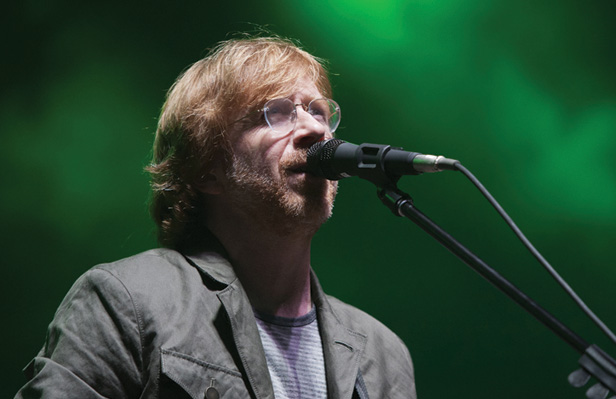July 29, 2024
Judge Says Jam Band Phish Can Seize Bootleg Merch
The federal order empowers law enforcement, including U.S. Marshals, to confiscate unlicensed swag being sold at and near the group’s concerts.
Jam bands may be all about the good vibes, but Phish has no chill when it comes to knockoff branded merchandise.
The popular jam band from Vermont has received a court order that allows bootleg Phish swag being sold at the group’s concerts to be seized by authorities that include U.S. Marshals and state, federal and/or local law enforcement.

Trey Anastasio and fellow Phish band members say bootleg merch at its concerts is a significant issue.
These entities are empowered to “seize and impound any and all counterfeit merchandise which defendants sell, offer for sale or are holding for sale, including from any bag, carton, container, vehicle, or other means of carriage in which the counterfeit merchandise is found, from 10 hours before to six hours after any performance by Phish within a 20 mile vicinity of the venues at which Phish shall be performing,” wrote Massachusetts-based U.S. District Judge Allison D. Burroughs.
Burroughs also preliminarily enjoined the bootleggers from making, selling, advertising or in any way distributing counterfeit branded merch bearing trademarks held by Phish and its group members.
The order comes as the band’s latest tour gets underway. The seizures could start soon, as a status hearing on the merch confiscation is scheduled for Sept. 5 in federal court.
No specific defendants are named.
“Because they are generally nomadic individuals without permanent business premises, it is impossible to identify bootleggers prior to a concert and the bootleggers often flee the area of the concert once they have sold their bootleg merchandise,” a court-filed complaint said. “Thus, Phish has been unable to determine the identities of defendants prior to filing this action.”
In the complaint, attorneys for Phish said the sale of unauthorized knockoff swag that uses trademarks that the band legally holds is a huge problem. Tens of thousands of pieces of counterfeit merch have been seized at Phish concerts over approximately the last 30 years, court papers said.
“Since the inception of Phish’s popularity in the 1990s, Phish’s concert tours have been plagued by individuals who sell unauthorized merchandise near, at and sometimes inside a concert venue,” attorneys from the firm Seyfarth Shaw LLP stated in the complaint.
The bootleggers look to “cash in” on the band’s “value and reputation, all in violation of the rights of those individuals and companies which possess the exclusive right to engage in such commercial activity,” the complaint said.
Phish’s clampdown on unlicensed swag differs from the approach taken by the Donald Trump campaign. Last month, ASI Media reported that vendors travel across the U.S. with the Trump campaign, which allows them to sell unofficial swag.
Though not officially tied to the Trump campaign, the vendors have a symbiotic relationship. Neither entity pays the other directly, a salesperson from 365 Campaign said, but the businesses donate approximately 10% of the revenue they make at the rallies to the campaign in exchange for vending permits.